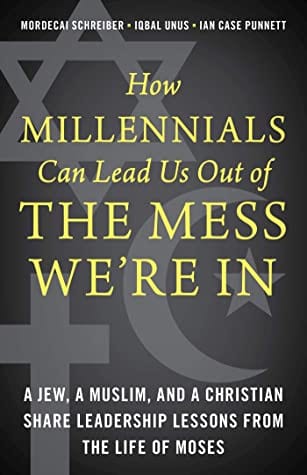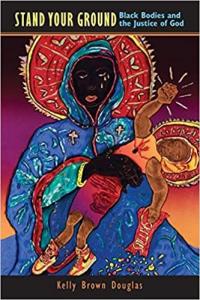This post is my contribution to a Patheos book club discussion on spiritual healing occasioned by the release of Reba Riley’s memoir, Post-Traumatic Church Syndrome.

A few years ago, when I taught a seminar for graduating seminary students, I required each of them to spend an hour reading “de-conversion narratives” on the website Ex-Christian.net. You can go straight to the testimonial articles here. The stories express a wide range of emotions.
Traumatic experiences in the church or in their spiritual experiences resulted in everything from anxiety (even fear), sadness, frustration, anger, horror, regret, and hopelessness. Many–if not most–of these emotions came from experiences with other Christians and/or leaders in the church. Testimonials also express discovery of relief, new-found hope, joy over a new sense of authenticity as a human being, emotional healing, and freedom– these experiences came after they set themselves free from the church and from their inherited or embedded Christian belief system.
Many of the testimonies tell of emotional, spiritual, and even physical/sexual abuse at the hands of Christians–whether by family members or church leaders. Many speak of the harmful words and even hateful actions of “believers.” Many of received the message, “Jesus hates you,” from their experience of church.
Some write of the irrelevance of the church to contemporary life and social problems. Others criticize incoherent theology and emotionally harmful images or portrayals of God they can no longer abide. A former seminary student writes of finding meaning outside of Christian faith, after he discovered that Christianity no longer made sense to him.
In one recent testimony, the author shares her relief at no longer having to repeat the superficial mantra: “God is good. All the time. All the time. God is good.” How is God good–all the time–she asks (I’m paraphrasing here), when it was God who put the serpent in the garden, in the first place? What kind of God would tempt his children, knowing they would sin and that evil–and his own wrath–would rain down upon them as a result?
Another testimony tells of growing up fundamentalist and experiencing legalism and being forced to go through strange rituals (e.g. “pounding on a trash-bag filled with “sinful” things, thereby beating Satan out of her life”), and of encountering a complete disinterest when she asked questions about God and tried to move beyond the “small” view of God she was taught in fundamentalist legalism.
These are just a few examples, but they go on and on. The more you read, the more you realize how traumatic the church and the spirituality it disseminates can be–for many, many people. And your heart sinks at the extent to which we Christians–and the “professional” pastors and leaders in the church–bear responsibility for the heartbreak, disillusionment, and disconnection from what should be a message of grace, hope, and life and from what should be communities of love and encouragement.
It is instructive to view these stories of “church/faith trauma” through the lens of James Fowler’s faith development theory. All of these testimonies, in one way or another, evidence moving past Fowler’s Stage Three, the “conventional stage,” where everybody believes what everybody else in the group believes, simply because they are “supposed to,” into Stage Four, the “individual-reflective” stage. In this stage, the believer has begun to recognize points of dissonance, anomalies, incoherencies–whether of theology or of behavior. Pastors and Christian leaders often aren’t good at leading people into and through the dissonance of Stage Four. In fact, and many church leaders and fellow Christians are largely responsible for those very dissonances in the first place.
Reba Riley’s new book, Post-Traumatic Church Syndrome, is a very important and timely book because she shares how she entered Stage Four (my language here), how she encountered existential, emotional, spiritual, and theological dissonance, and how she found her way through those internal and external conflicts to retain an deep and authentic faith in God.
To refer to Fowler again, it seems Riley has moved past disjunctive faith, through the reflective stage (and through crisis of faith) into Stage Five and conjunctive faith, which is a more symbolic, less literalistic, and non-fundamentalistic form of faith, but one in which deep relation with God can be experienced. It is often the experience of suffering (trauma, even) which can give rise to this kind of deep faith.
As Riley notes, this process in fact was traumatic; she found herself broken in the process. And her theology did not stay the same. It could not have–for much of her dissonance was caused by the theology–the God images–she had inherited in and by the church. She realized she had to change her image of God–in order to relate to God more truly and more authentically. But she also realized that, not only was that necessary, it was right and true.
Riley’s story of trauma–and getting past it to remain a believer (though a different kind of believer)–does not trump, undercut, or overcome the many other stories represented (in small part) by ex-Christian.net. Many walk away from the church and from faith altogether. They find more or better life outside of the church than inside it. Those stories must be respected in their own right.
They are also reminders to those of who remain believers, who remain committed to the church, and who are involved in leadership, that there are many out there–many who might be silent about their experiences–who are experiencing deep hurt, confusion, dissonance, and even trauma in the church and sometimes at the hands of Christians and pastors they know. While suffering can bring about a deeper faith, that’s never an excuse for causing it. And more often and not, when the suffering (or trauma) is caused by the church and its leaders, the victims will walk away and find life elsewhere. Who can blame them?
But if I could urge every pastor to spend an hour reading the testimonies on ex-Christian.net, I would also urge every pastor to read Reba’s memoir. For there, one finds a story of hope and life even through the brokenness of the dissonance of faith. It’s a counter-narrative to the emerging bleakness of our post-Christian and rising “secular” age; a counter-narrative which shows that vital faith, deep theology, and soul-bearing theology is still very much possible–and even alive and well.
The challenge before us is to carve out a way of being Christian, of understanding and experiencing faith, that leads to a whole self rather than a divided self, a life of love rather than a life of judgment, and Jesus who loves rather than a Jesus (and church) that hates.
Stay in the Loop! Like/follow Unsystematic Theology on Facebook or more theology and society related posts and discussions.














